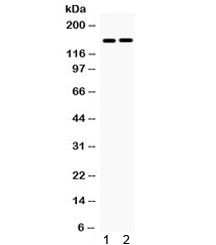Cookie preferences
This website uses cookies, which are necessary for the technical operation of the website and are always set. Other cookies, which increase the comfort when using this website, are used for direct advertising or to facilitate interaction with other websites and social networks, are only set with your consent.
Configuration
Technically required
These cookies are necessary for the basic functions of the shop.
"Allow all cookies" cookie
"Decline all cookies" cookie
CSRF token
Cookie preferences
Currency change
Customer-specific caching
FACT-Finder tracking
Individual prices
Selected shop
Session
Comfort functions
These cookies are used to make the shopping experience even more appealing, for example for the recognition of the visitor.
Note
Show the facebook fanpage in the right blod sidebar
Statistics & Tracking
Affiliate program
Conversion and usertracking via Google Tag Manager
Track device being used

| Item number | Size | Datasheet | Manual | SDS | Delivery time | Quantity | Price |
|---|---|---|---|---|---|---|---|
| NSJ-R32342 | 100 µg | - | - |
3 - 10 business days* |
772.00€
|
If you have any questions, please use our Contact Form.
You can also order by e-mail: info@biomol.com
Larger quantity required? Request bulk
You can also order by e-mail: info@biomol.com
Larger quantity required? Request bulk
0.5mg/ml if reconstituted with 0.2ml sterile DI water. HDAC6, also called KIAA0901, is a member... more
Product information "Anti-HDAC6"
0.5mg/ml if reconstituted with 0.2ml sterile DI water. HDAC6, also called KIAA0901, is a member belongs to class II of the histone deacetylase/acuc/apha family of proteins that is an enzyme that in humans is encoded by the HDAC6 gene. The HDAC6 gene is mapped to chromosome Xp11.23. HDAC6 contains an internal duplication of two catalytic domains which appear to function independently of each other. The protein possesses histone deacetylase activity and represses transcription. HDAC6 functions as a tubulin deacetylase. And it is localized exclusively in the cytoplasm, where it associates with microtubules and localizes with the microtubule motor complex. HDAC6 could bind both polyubiquitinated misfolded proteins and dynein motors, thereby recruiting misfolded protein cargo to dynein motors for transport to aggresomes. Furthermore, expression of HDAC6 was sufficient to rescue degeneration associated with UPS dysfunction in vivo in an autophagy-dependent manner. HDAC6 is a central component of the stress response that regulates SG formation and potentially contributes to control of RNA metabolism and translation. Protein function: Responsible for the deacetylation of lysine residues on the N-terminal part of the core histones (H2A, H2B, H3 and H4) (PubMed:10220385). Histone deacetylation gives a tag for epigenetic repression and plays an important role in transcriptional regulation, cell cycle progression and developmental events (PubMed:10220385). Histone deacetylases act via the formation of large multiprotein complexes (PubMed:10220385). In addition to histones, deacetylates other proteins, such as CTTN, tubulin and SQSTM1 (PubMed:12024216, PubMed:20308065, PubMed:26246421, PubMed:30538141, PubMed:31857589). Plays a central role in microtubule-dependent cell motility by mediating deacetylation of tubulin (PubMed:12024216, PubMed:20308065, PubMed:26246421). Required for cilia disassembly, via deacetylation of alpha-tubulin (PubMed:17604723, PubMed:26246421). Promotes deacetylation of CTTN, leading to actin polymerization, promotion of autophagosome-lysosome fusion and completion of autophagy (PubMed:30538141). Involved in the MTA1-mediated epigenetic regulation of ESR1 expression in breast cancer (PubMed:24413532). Promotes odontoblast differentiation following IPO7-mediated nuclear import and subsequent repression of RUNX2 expression. In addition to its protein deacetylase activity, plays a key role in the degradation of misfolded proteins: when misfolded proteins are too abundant to be degraded by the chaperone refolding system and the ubiquitin-proteasome, mediates the transport of misfolded proteins to a cytoplasmic juxtanuclear structure called aggresome (PubMed:17846173). Probably acts as an adapter that recognizes polyubiquitinated misfolded proteins and target them to the aggresome, facilitating their clearance by autophagy (PubMed:17846173). [The UniProt Consortium]
| Keywords: | Anti-HD6, Anti-JM21, Anti-Histone deacetylase 6, Anti-Protein deacetylase HDAC6, Anti-Tubulin-lysine deacetylase HDAC6, HDAC6 Antibody |
| Supplier: | NSJ Bioreagents |
| Supplier-Nr: | R32342 |
Properties
| Application: | WB, FC |
| Antibody Type: | Polyclonal |
| Conjugate: | No |
| Host: | Rabbit |
| Species reactivity: | human, mouse, rat |
| Immunogen: | Amino acids EKEELMLVHSLEYIDLMETTQYMNEGELRVLAD of human HDAC6 |
| Format: | Purified |
Database Information
| KEGG ID : | K11407 | Matching products |
| UniProt ID : | Q9UBN7 | Matching products |
| Gene ID : | GeneID 10013 | Matching products |
Handling & Safety
| Storage: | +4°C |
| Shipping: | +4°C (International: -20°C) |
Caution
Our products are for laboratory research use only: Not for administration to humans!
Our products are for laboratory research use only: Not for administration to humans!
Information about the product reference will follow.
more
You will get a certificate here
Viewed







